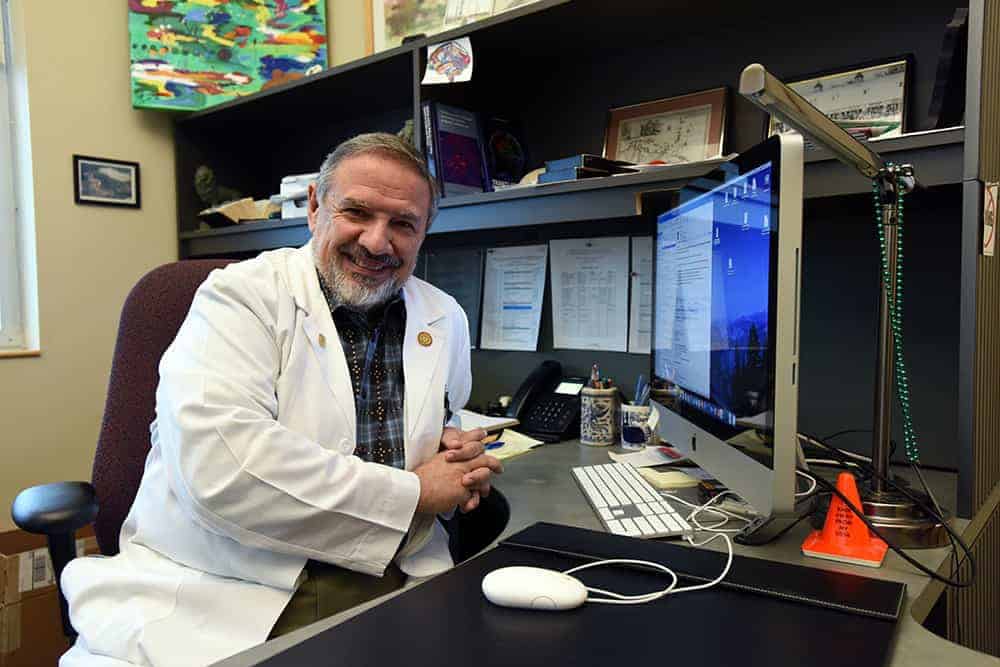UAMS Professor Offers Insights into Criminal Intent, Co-Authors Law Review Article
| May 23, 2018 | A University of Arkansas for Medical Sciences (UAMS) professor of neurobiology recently co-authored a Kentucky Law Review article that offers insights into the nature of criminal intent and urges the court system to admit more expert testimony into trials regarding the subject.
In “Actus Reus, Mens Rea, and Brain Science: What Do Volition and Intent Really Mean?,” Edgar Garcia-Rill, Ph.D., and the late Erica Beecher-Monas, J.D., give the example of someone walking along a sidewalk while in conversation yet being ‘preconscious’ of traffic and other pedestrians so as to allow for safe navigation.
The co-authors conclude that “we are ‘conscious’ while performing the movement and that the activity preceding the intent is a manifestation of ‘our preconscious awareness.’ That is, we are preconscious to the performance of our movements, and therefore responsible for all of our actions. And yes, free will is alive and well.”
Studies by the late researcher Benjamin Libet in the early 1980s have suggested that one’s voluntary movements begin “unconsciously” because brain waves are manifested in advance of the subjective “will” to move. This led to the suggestion that there is no free will. Libet surmised that individuals still have the ability to stop actions or movements of which they are not fully conscious. This became known as “free won’t.”
However, Garcia-Rill has been working on the brain regions that further preconscious awareness, and such activity is present in a person’s brain while conscious (not when one is unconscious) but the person is just not paying attention to it, thus the name “preconscious awareness.”
Garcia-Rill is director of the UAMS Center for Translational Neuroscience, funded by the National Institute for General Medical Sciences’ IDeA Program. Beecher-Monas was a professor of law at Wayne State University until her death in the summer of 2017.
Garcia-Rill and Beecher-Monas argue that the legal concepts of criminal act and criminal intent are outmoded.
“The legal meaning of choice, intent and volition originated not from empirical studies about human brains and behavior, but from ungrounded beliefs about human nature,” the authors state. “The law still operates on outdated, 19th century assumptions about how human beings function.”
Refusing to admit expert testimony about mental illness is contributing to the complex problem of mental illness among prison inmates and failing to protect society when the convicted are released, Garcia-Rill and Beecher-Monas argue.
“Judges should instead admit expert testimony so the jury can perform its interpretive and evaluative functions,” they conclude.
The article and the edition of Kentucky Law Review in which it was published were dedicated to the family of Beecher-Monas.
“Through a protracted illness, she worked doggedly on this article that stands as a legacy to a unique law professor,” Garcia-Rill stated in a dedication. “It is to the more informed decision-making, the more humane policy drafting, and the more relevant law enactment, that Erica devoted her life. And she did so with the same love and commitment she had for her children and grandchildren, to whom this article and entire issue is dedicated.”
